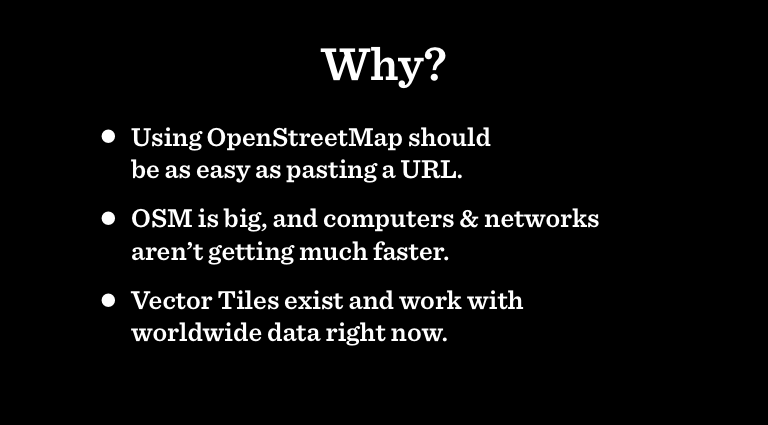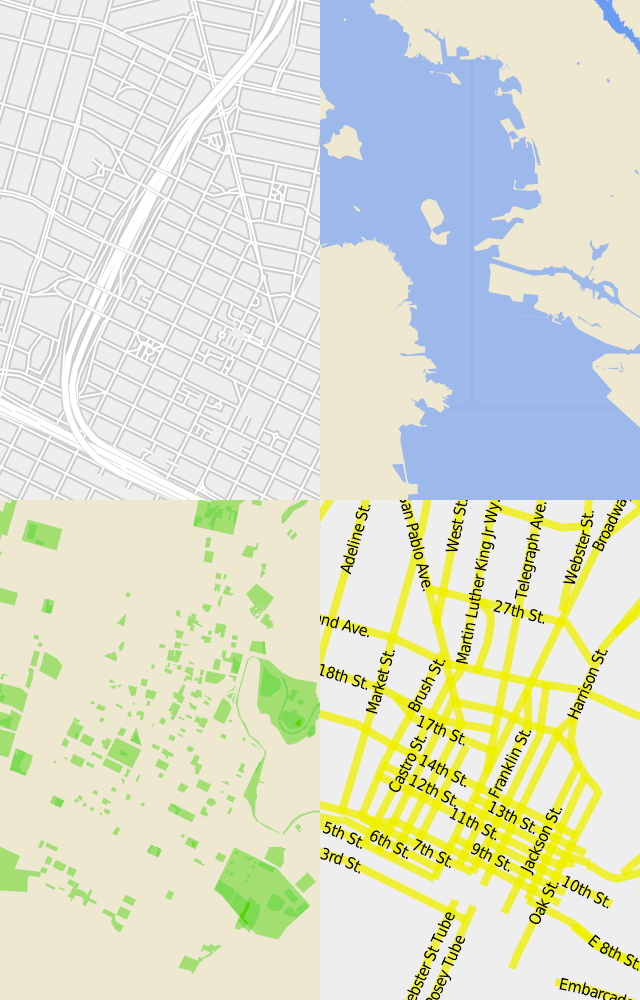tecznotes
Michal Migurski's notebook, listening post, and soapbox. Subscribe to ![]() this blog.
Check out the rest of my site as well.
this blog.
Check out the rest of my site as well.
Apr 3, 2013 8:23pm
week 1,846: ladders
I finished Evgeny Morozov’s mega-screed The Meme Hustler (“Tim O’Reilly’s crazy talk”) yesterday. If you can squeeze uncomfortably past the acid-drenched ad hominem opener, Evgeny recounts the history of the Open Source vs. Free Software memetic war of the late 1990’s and its relationship to political power:
Ranking your purchases on Amazon or reporting spammy emails to Google are good examples of clever architectures of participation. Once Amazon and Google start learning from millions of users, they become “smarter” and more attractive to the original users. This is a very limited vision of participation. It amounts to no more than a simple feedback session with whoever is running the system. You are not participating in the design of that system, nor are you asked to comment on its future. There is nothing “collective” about such distributed intelligence; it’s just a bunch of individual users acting on their own and never experiencing any sense of solidarity or group belonging. Such “participation” has no political dimension; no power changes hands. … There’s a very explicit depoliticization of participation at work here.
This morning, Matt said this, in response to Wave’s comment/question about empowerment:
@drwave once you’re “there”: making sure you don’t pull up the ladder, making new, better ladders, admitting there was a ladder.
The image of the ladder sticks with me. I entered into awareness of Open-vs.-Free in 1999, when it looked like another Vi-vs.-Emacs thing, an interminable pissing match for nerds. In Morozov’s retelling, the power politics of Freedom and Openness look newly fresh, important all over again. It touches the question of who the ladder is for, who’s inside the tribe deserving of help, and how to think about equity. The Free Software side of the argument framed a bigger community, consisting of users and developers together. GNU's four freedoms name use and study before they name distribution and modification. Order matters, ladders are for everyone.
I spoke at Ragi Burhum’s Geomeetup yesterday, about my recent work on vector tiles for Mapnik. The slides are here in PDF form. One of the subtexts to my OSM work for the past few years has been the ladder-making that Matt describes: a way to make datasets like OSM available to more people who might not otherwise choose to learn the full set of tools needed to work with the raw stuff, but still have important things to say. That includes professional message-makers like journalists but also enthusiasts like Stephanie May or Burrito Justice (on tacos and history). There are commercial answers to this question from companies like Google or Mapbox, but in addition to those it should always be possible to take your message into your own hands, most especially if your message is likely to get under someone’s fingernails. Free software and free data work as one kind of ladder, continually looking back as well as forward, assimilating innovation and passing it down to where it wouldn’t otherwise reach. I’m tempted to call this “trickle down”, but it occurs to me that the pull of gravity is all wrong in that image. Things don’t move from the core to the gap like water flowing downhill, but quite the opposite. Left alone, innovation and capital accrue to where they are already in highest concentration. Collective work and effort are the only forces that can counteract gravity with any regularity.
Here is the data. Please tell me if you find it interesting, useful, or need help.


Comments
Sorry, no new comments on old posts.